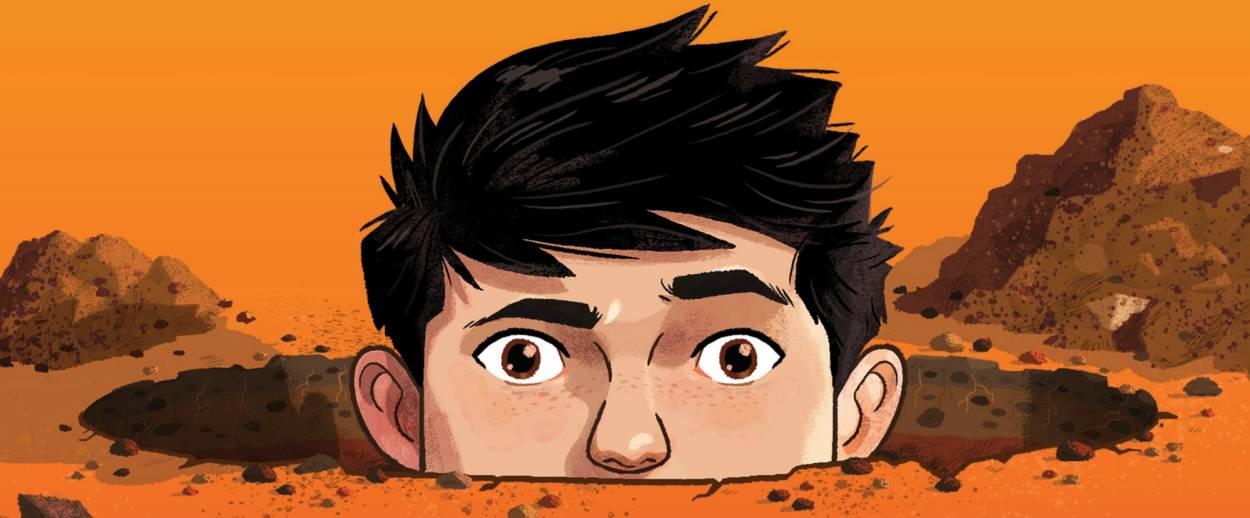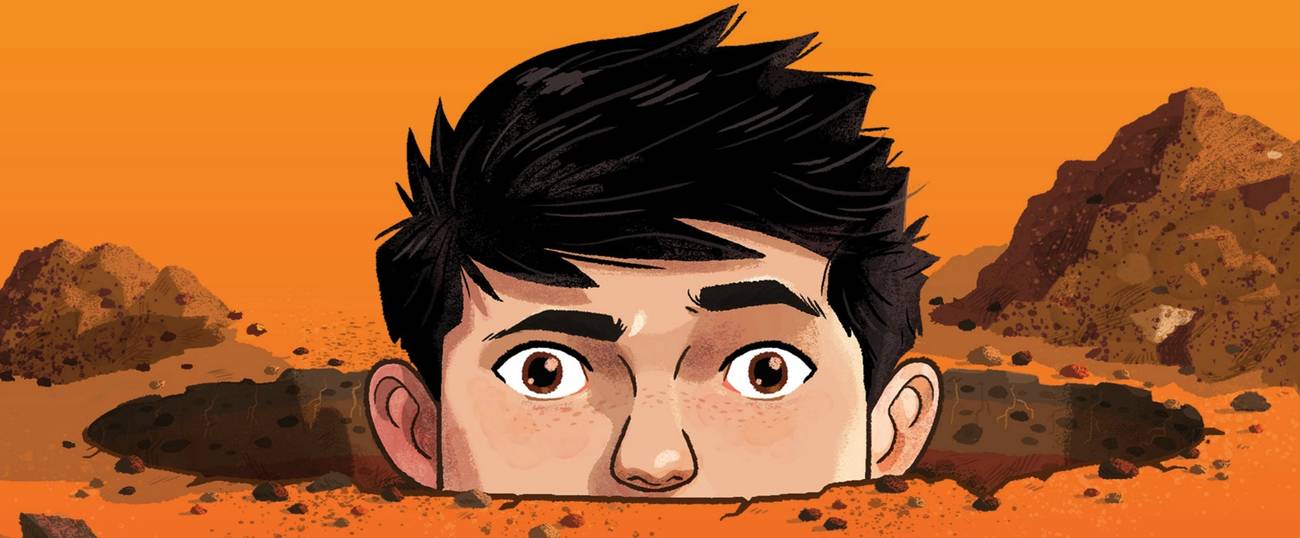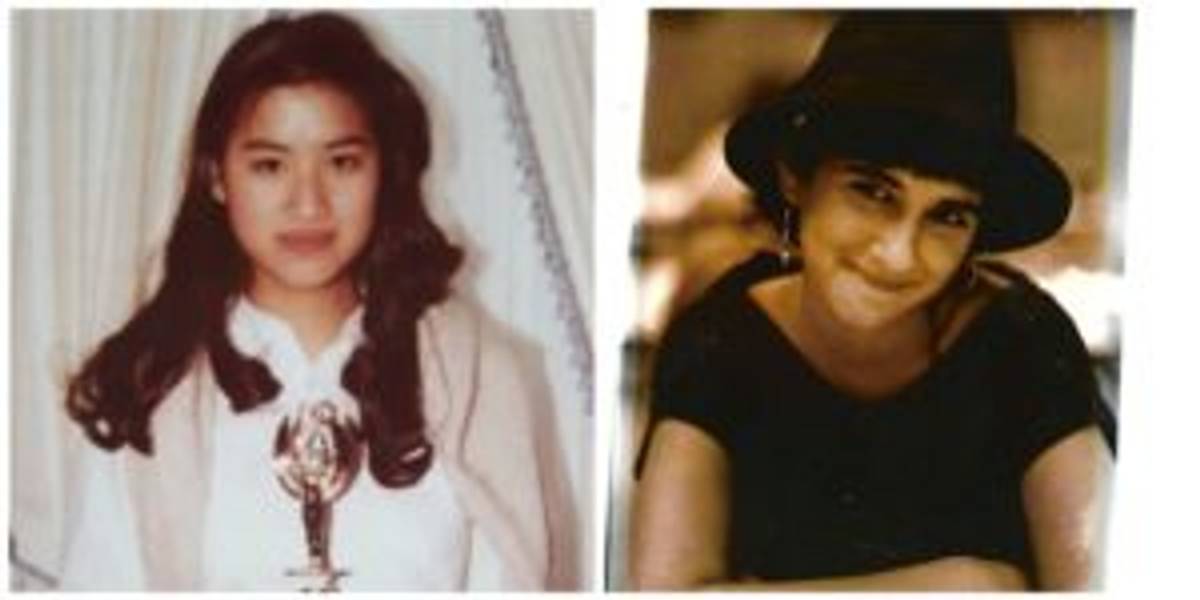A Comic Novel About Nuclear Anxiety, Betamax, and Bar Mitzvah
The award-winning ‘This Is Just a Test’ is set in the 1980s but feels utterly fresh




This is Just a Test–a hilarious 1980s tale of nuclear anxiety, Bar Mitzvah anxiety, Chinese-ness, and Atari–was one of my favorite children’s novels of 2017. The folks at the Sydney Taylor Awards loved it too, awarding it a silver medal last month. (Check out all the winners here.) The book’s authors, Madelyn Rosenberg and Wendy Wan-Long Shang, chatted with The Scroll as part of the Association of Jewish Libraries’ “People of the Books” blog tour. Check the full tour schedule here.
Full disclosure and Jewish geography: Scroll editor Liel Leibovitz’s wife was This Is Just A Test’s editor. Tablet kidlit columnist Marjorie did not know this until Liel walked by her as she was cackling loudly while reading it and exclaimed, “Hey, Lisa edited that!” Regardless, Marjorie’s impartiality remains above reproach. Ask anyone.
Marjorie: So, Wendy and Madelyn, did all the delicious ‘80s details in This Is Just a Test come strictly from your memories? Or did you have Pinterest boards and old issues of Seventeen and stuff to find references? Were there any specific things you’d forgotten that writing the book brought back for you?
Wendy: I was fascinated to look back and see how the Cold War infiltrated so much of our pop culture — the movies and songs of the time — because I didn’t see it then. It seemed so normal. I think we’re having a moment like that now, where we’re all collectively working our way through an issue, with the theme being speaking up against repression and privilege.
Madelyn: You can’t always trust memories, though we had many. Newspapers were my go-to. We also looked at old commercials and re-watched The Day After. Popcult things I had forgotten: Pudding Pops. Steve Guttenberg.
Marjorie: What were you each like as ‘80s children? Where did you grow up?
Wendy: I grew up in Fairfax, VA. My parents couldn’t see their way clear to expenses like designer jeans or fancy sneakers, which was probably good for me in the long run.
Madelyn: I grew up in Blacksburg, VA and was an ‘80s hybrid: Army jacket, band geek, Molly-Ringwald-wannabe (Pretty in Pink Molly, not Breakfast Club Molly). My add-a-bead necklace—a bat mitzvah gift—never had more than the bead it came with. I owned an alligator shirt but also wore a lot of black. I saw both the Ramones and Hall and Oates in concert (not together).

Marjorie: Did you have nuclear terrors?
Madelyn: We both remembered watching The Day After, which haunted us the rest of our childhoods. I always looked for the yellow fallout shelter signs because I wanted to know where they were. (There was one in my middle school basement, for example.) A teacher said to us recently that she thought some of her students would really need our book—that felt both good and bad, for obvious reasons.
Marjorie: How’d you divvy up the writing tasks? I’m always fascinated by the process of people who write fiction as a team.
Wendy: Except for a very few parts of the book, I don’t even know who wrote what. It was that collaborative.
Madelyn: There was no official chore chart. We just kept passing it back and forth until we were done. Whoever got it would edit the previous section and take the story forward.
Wendy: But Madelyn is a journalist by training and knows what makes a good story; she was the one who said that David had to be doing something, which led to the digging and the fallout shelter.
Marjorie: Can you tell me a line or scene that the other person wrote that made you either GUFFAW or think “damn, she’s good”?
Madelyn: I had set up a chapter with a traditional narrative where David was working on a science project to see what food would provide the most energy should they be confined to a fallout shelter: SPAM or tuna? Wendy rewrote the chapter as if she were handing in an actual science project, with a hypothesis, conclusion, graphs and some snarky commentary. I thought she was a total genius. (I’d thought that earlier, of course, but it was a moment of reaffirmation.)
Wendy: There’s a moment in the book when the Chinese grandmother and the Jewish grandmother are talking about living in repressive regimes, and how they’ll even read your mail. David asks why they would read your mail, and Safta says, “Because it’s something to take away.” The first time I read that line, it took my breath away. It also marks a moment when the two sparring grandmothers realize they have more in common than they think.
Marjorie: Were you worried that people would see Wai Po and Granny M as ethnic/cultural stereotypes?
Madelyn: Yes. Though my own grandmother did fit many cultural stereotypes.
Wendy: The bigger issue for me was keeping the grandmothers from taking over the book! They are both so naughty/hilarious. I am wildly thankful that both of my children’s grandmothers live nearby and adore each other.
Marjorie: Madelyn, what’s your Jewish background and current connection to Judaism? Wendy, were you raised with religion, and does it have a role in your life now?
Madelyn: There weren’t many Jews in southwest Virginia, which meant that I spent a lot of time explaining what it meant to be Jewish (“it’s more than kosher pickles”) and figuring out what it meant to me. Despite its size, our community put together a synagogue, which opened in 1979 and was always referred to as The Building. Now I’m part of a larger Jewish community in Arlington, VA.
Wendy: I was raised with Confucian values, which emphasize our responsibilities to each other. It would be fair to say that I am still mindful of this, though I also am a big fan of Harold Ramis, who said, “Life is ridiculous, so why not be a good guy?”
Marjorie: Do you think comedy doesn’t get enough respect? Why is it so important — in children’s books and in life?
Wendy: I don’t know why comedy fails to get more respect! To me, writing good comedy is one of the hardest jobs there is. Humor is the grease that gets us through life – it helps us create connection and realize the ridiculousness of many situations.
Do you have kids? How old are they? Are they delighted or mortified by your writing?
Madelyn: There’s probably some mathematical formula that could determine the exact ratio of delight and mortification. Certainly, there’s both. My son was getting ready for his bar mitzvah while we were writing the book, and my daughter was getting ready for hers when it was being published. I’m always talking about books as mirrors and windows, and my son, when this was still in manuscript form, said, “I really see myself in this one!”
Wendy: My kids are delighted that I write but horrified when I show up at their schools. One of my sons actually covered his head and turned away once when I visited his school as an author. A teacher scolded him and said, “It’s not every day that you see an author!” He was then put in the position of either proving her wrong by admitting I was his mother (we have different last names), or keeping his mouth shut, which is its own torture.
Marjorie: Did you know that two weeks ago the Doomsday Clock was moved ahead by 30 seconds to two minutes to midnight, meaning that the last time experts deemed us this close to nuclear war was 1953? How does it feel to be so timely?
Madelyn: I saw that story and felt a familiar panic. As Wendy keeps saying: We did not mean to be prescient; we meant to be historic. Our hope is that since this is (much as we hate to admit it) historic fiction, readers will realize that we’ve been through scary times before. And we’re still here.
Wendy: And if we’re wrong, young readers are welcome to come to my house and kick me in my radioactive butt.
Marjorie Ingall is a former columnist for Tablet, the author of Mamaleh Knows Best, and a frequent contributor to the New York Times Book Review.